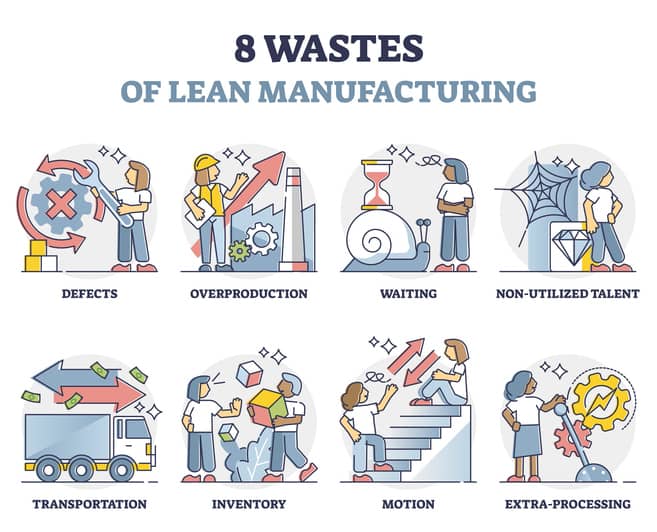A study from scientists in Brazil and South Carolina has found the application of Lean Six Sigma (LSS) in the food industry positively affected overall performance and can have a great impact if more businesses adopt its strategies.
The study, published in Food Control, calls for more people in management and leadership positions to become Lean Six Sigma practitioners, something that has been found to be a key to success across all industries.
“Our findings suggest that LSS is relevant and effective in this sector. Food industry performance is positively affected by the adoption of LSS practices,” the researchers wrote. “Moreover the adoption of LSS practices in the food industry is greatly affected by the level of experience of the individual company.”
Research Involved 145 Companies
Researchers from the Department of Industrial Engineering at Federal University of São Carlos and the Department of Management at Clemson University teamed up to do the study. Researchers looked at the framework of 145 companies to determine if using Lean Six Sigma strategies could impact operations.
They found that it could, but also wrote that the level of Lean experience moderated two key food sector indicators – financial gains and product quality. In an industry with low adoption rates of Lean, it’s something that can make a big difference.
The findings of the study match those of a previous review of study literature on Lean and the food industry done for Trends in Food Science & Technology. That review consolidated existing knowledge about use of Lean in the food industry, including critical success factors, tools and methods applied, barriers faced, and benefits obtained.
That study also found that Lean and continuous process improvement can make a big impact in the sector, reducing costs and increasing productivity.
A recent example of this is the French food processing business, Sodebo. The company specializes in selling premade pizzas, pastas, salads and sandwiches in supermarkets, service stations, airports and railway stations.
The company has used Lean practices to help the company grow since it’s humble beginnings as a local delicatessens in the 1970s, including use of the Single Minute Exchange of Die (SMED) to add flexibility to production processes.
With the coronavirus outbreak in 2020, the company used Lean practices to set up efficient and effective safety procedures. They’ve also encouraged employees to hold Kaizen events in their own departments to decide the best methods for applying new rules.
Potential Roadblocks in the Food Industry
The study noted that the very structure of the food industry presents roadblocks to Lean Six Sigma adaptation. In their view, the way around these roadblocks requires business leaders to become more familiar with the potential benefits of Lean.
The roadblocks include compulsory cleaning practices that could restrict adoption of some, but not all, Lean practices such as set-up time reduction. However, they noted the food industry could benefit in this area by applying Six Sigma role structure and Statistical Process Control.
Executive buy-in is needed because putting Lean practices into place requires financial resources for training, which they wrote “can be a challenge in a sector with low margins that primarily focuses on cost reduction, and they require statistical techniques and knowledge that is generally considered complex and too advanced in the food industry.”
However, the advantages of having people on staff trained in Lean Six Sigma far outweigh the disadvantages.
These findings suggest that as managerial awareness of the relevance of LSS practices to food industry performance improvement increases, that managers will encourage employees to gain experience using the tools.
They also run up against the same issue that plagues businesses in all industries: resistance to change. A recent Forbes article quoted from a study that found less than half of surveyed executives believe they can drive new levels of efficiency and effectiveness and transform their current business models.
However, Forbes also noted that a time of crisis, such as the coronavirus pandemic, is the best time to make changes that better position businesses to reap the rewards in the coming years. That’s a message that applies to the food industry, as well.



